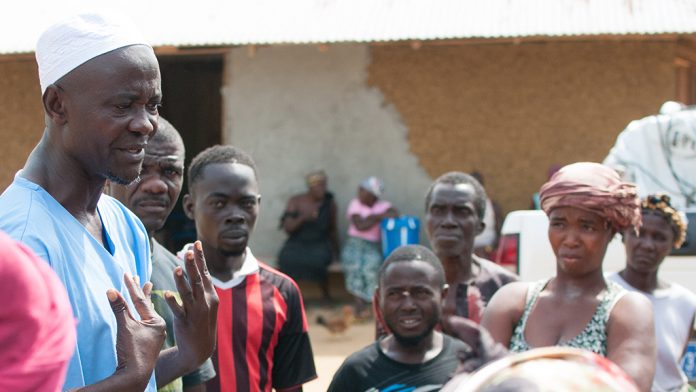Image credit: UNMEER/Simon Ruf
Call to action – influence the NCDs Commission
Updated 10 May
In a joint statement with the International Council of Nurses (ICN) and International Confederation of Midwives (ICM), we urged the Commission to mobilise nurses and midwives on NCDs.
Join us in calling for the Commission to mobilise nurses and midwives for promotion, prevention and early detection of NCDs by ensuring your organisation submits its comments to the consultation by 16 May.
Background
In October 2017, the World Health Organization (WHO) established the High-level Commission on Noncommunicable Diseases (NCDs). The Commission aims to propose bold and innovative solutions to better prevent and control the leading killers on the planet – heart and lung disease, cancer and diabetes – and promote mental health and well-being.
What should I know about NCDs?
NCDs, including heart disease, stroke, cancer, diabetes and chronic lung disease, are collectively responsible for almost 70% of all deaths worldwide. The rise of NCDs has primarily been driven by four major risk factors: tobacco use, physical inactivity, the harmful use of alcohol and unhealthy diets.
Who’s involved with the Commission?
The High-level Commission is being co-chaired by Nursing Now champion, Dr Sania Nishar, a prominent global advocate for action against NCDs, former Federal Minister of the government of Pakistan and civil society leader.
Nursing Now Board Member and President of the International Council of Nurses, Annette Kennedy is a member of the Commission. She has already issued a statement outlining the transformative role nurses can play in tackling NCDs, provided they are properly respected, educated and deployed where communities need them most.
Other commissioners include a wide range of health ministers and government leaders, along with prominent health experts from across the world.
What are the Commission’s aims?
The Commission aims to propose innovative recommendations to help countries: “make bold political choices; strengthen good governance for curbing NCDs; use new science and innovations; finance national NCD responses; mobilize international cooperation; establish a national accountability mechanism; address the impact of economic, market and commercial factors; and integrate mental health within national NCD responses”.
There is already a clear vision and roadmap for NCDs, so the Commission will focus instead on how to overcome the barriers to its implementation, which has been slow and patchy.
How does this relate to Nursing Now?
Nursing Now supporters can help shape the global response to NCDs by feeding into the Commission’s decision-making processes.
As a campaign, we’re committed to convincing the Commission of both the overarching importance of the health workforce and the unique contributions that nursing specifically can make to promoting awareness of and preventing NCDs.
Action
There are over 20 million nurses globally, who could play a pivotal role in leading the holistic people-centred approach to healthcare needed to beat NCDs – it’s time to mobilise!
Here are two ways nurses and their supporters can influence action on NCDs:
1. Write in to the NCDs Commission report consultation and argue for mobilising the nursing and midwifery workforce to promote health and prevent disease systematically and at scale – and, of course, make any other points important to you!
2. Spread the message about what nurses are doing to #beatNCDs on social media, at events, on the news and in your workplaces. Talk about how nursing is vital to the fight against cancer, heart disease, diabetes and other NCDs.
Next steps
1. There is a very short period to influence the consultation. It only lasts from 9-16 May 2018.
2. We will update this guide as we receive new information from the NCDs Commission.

